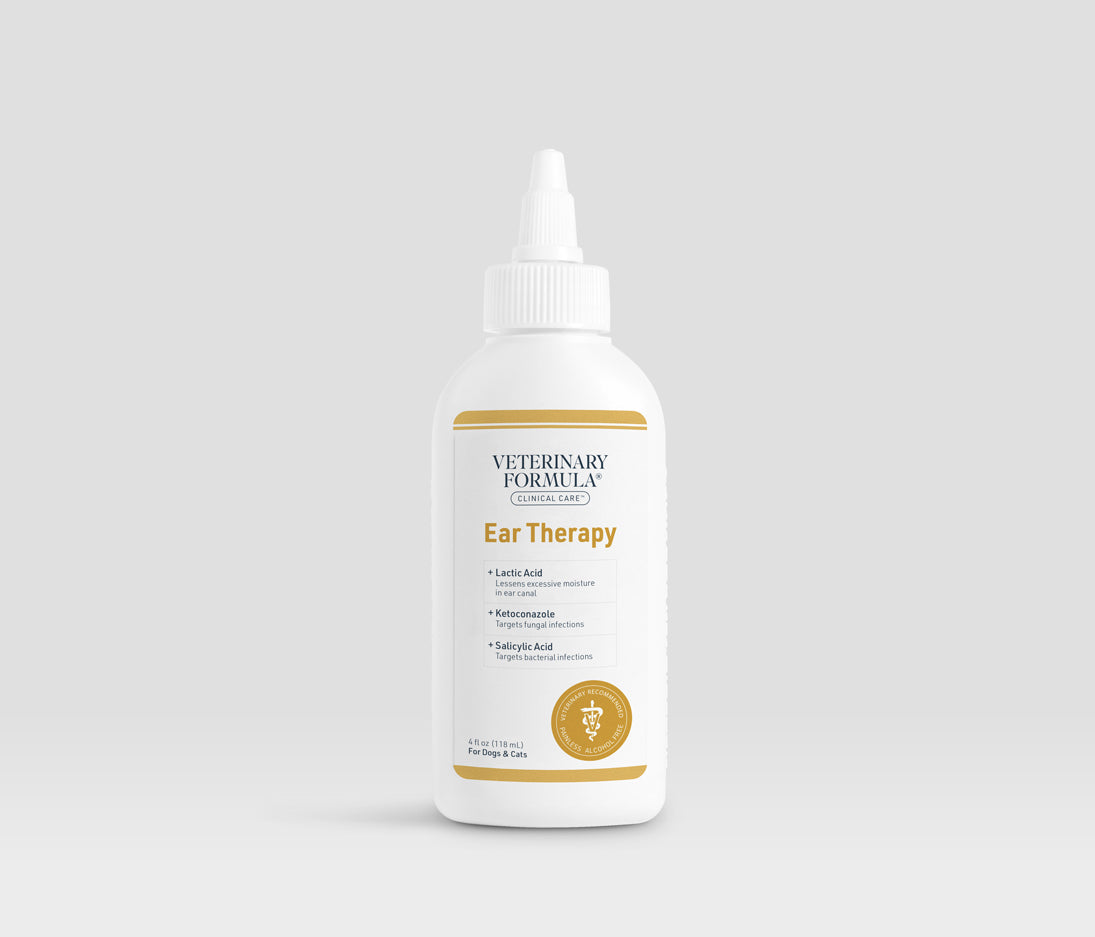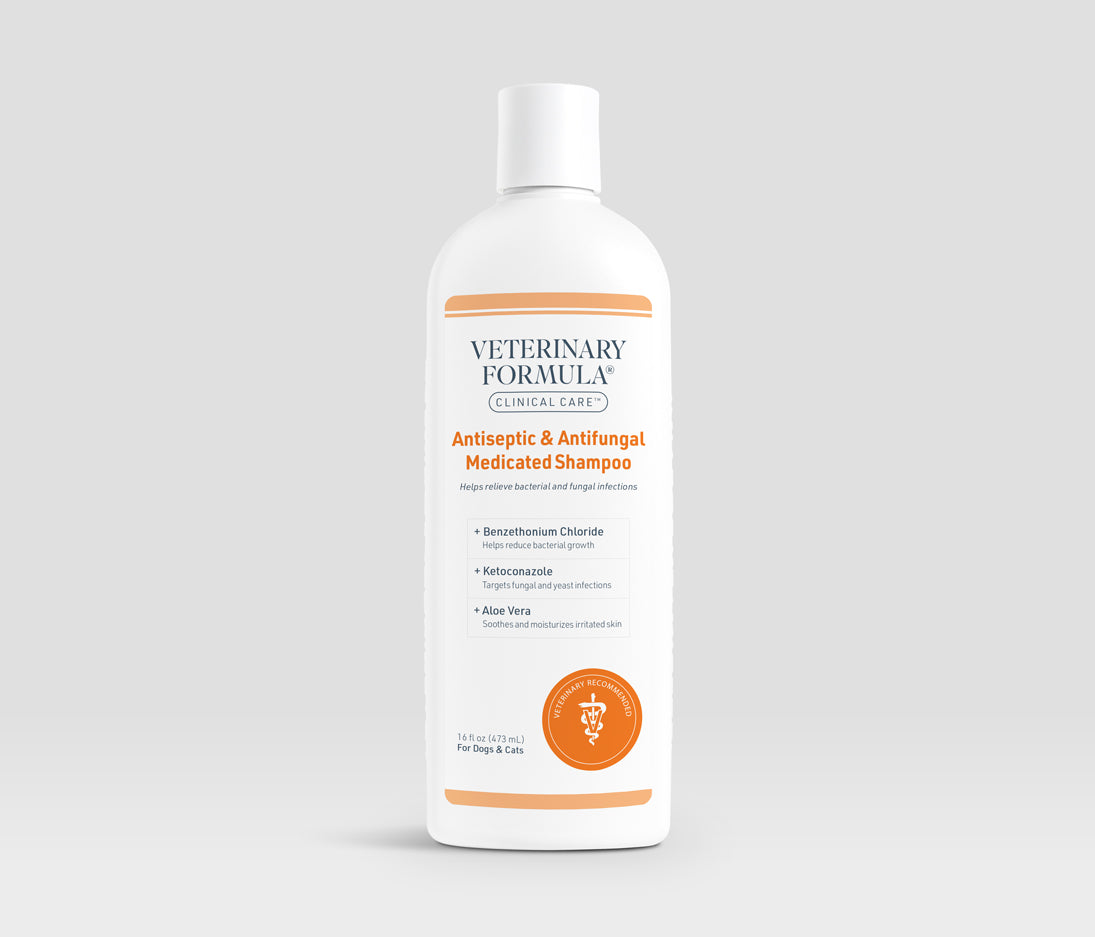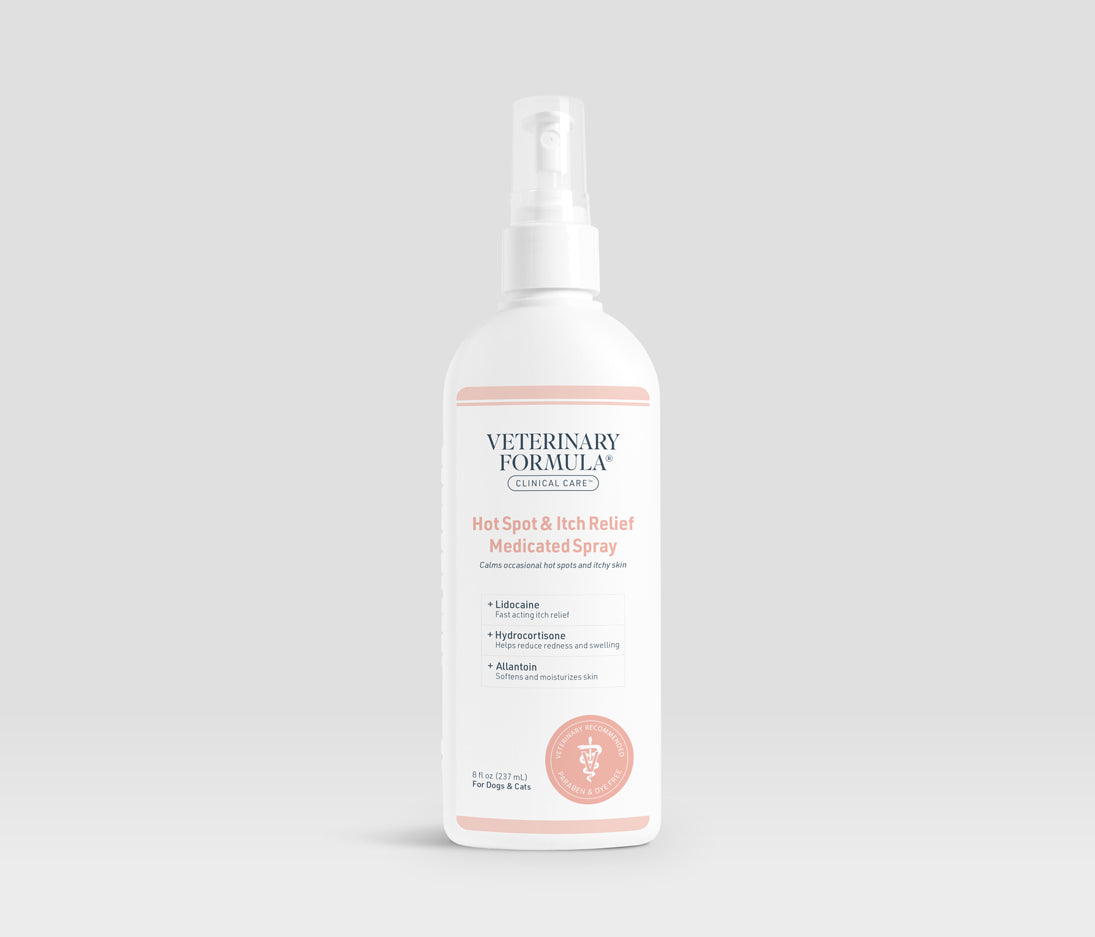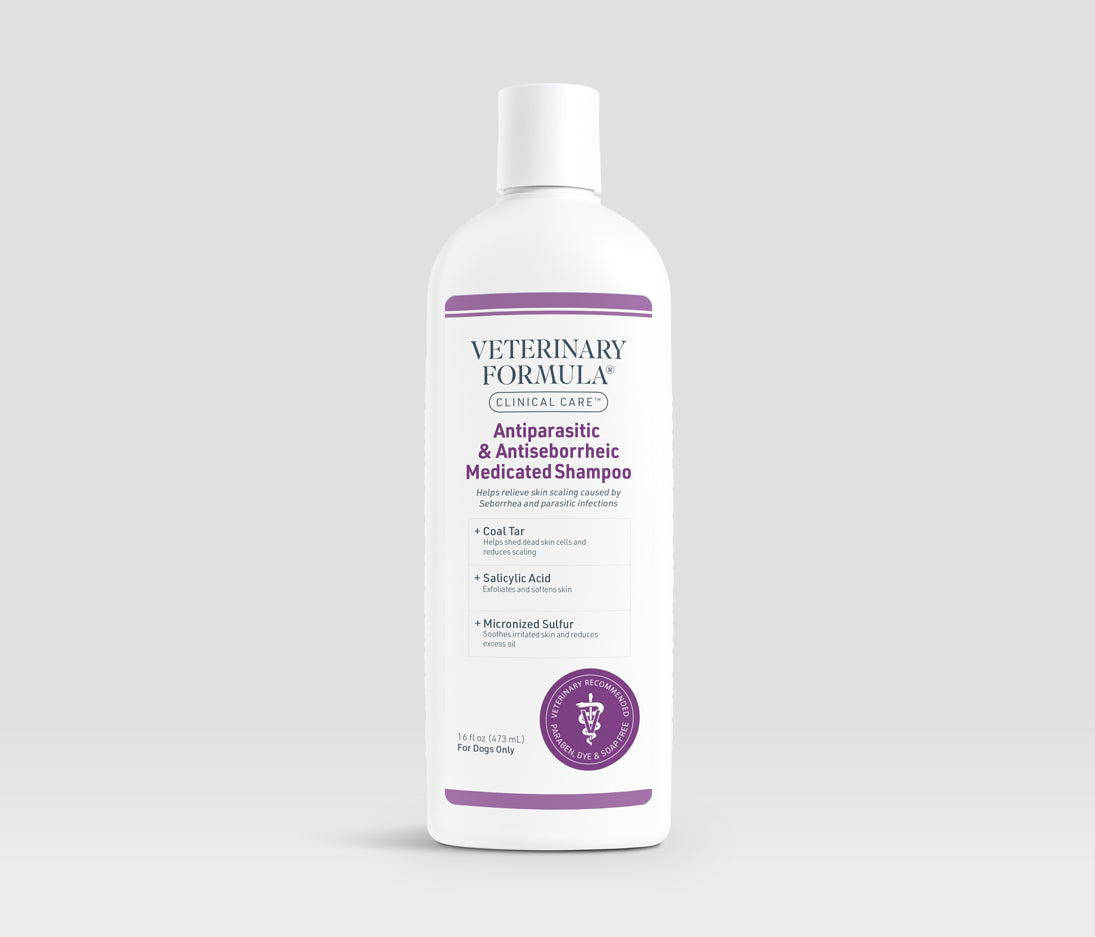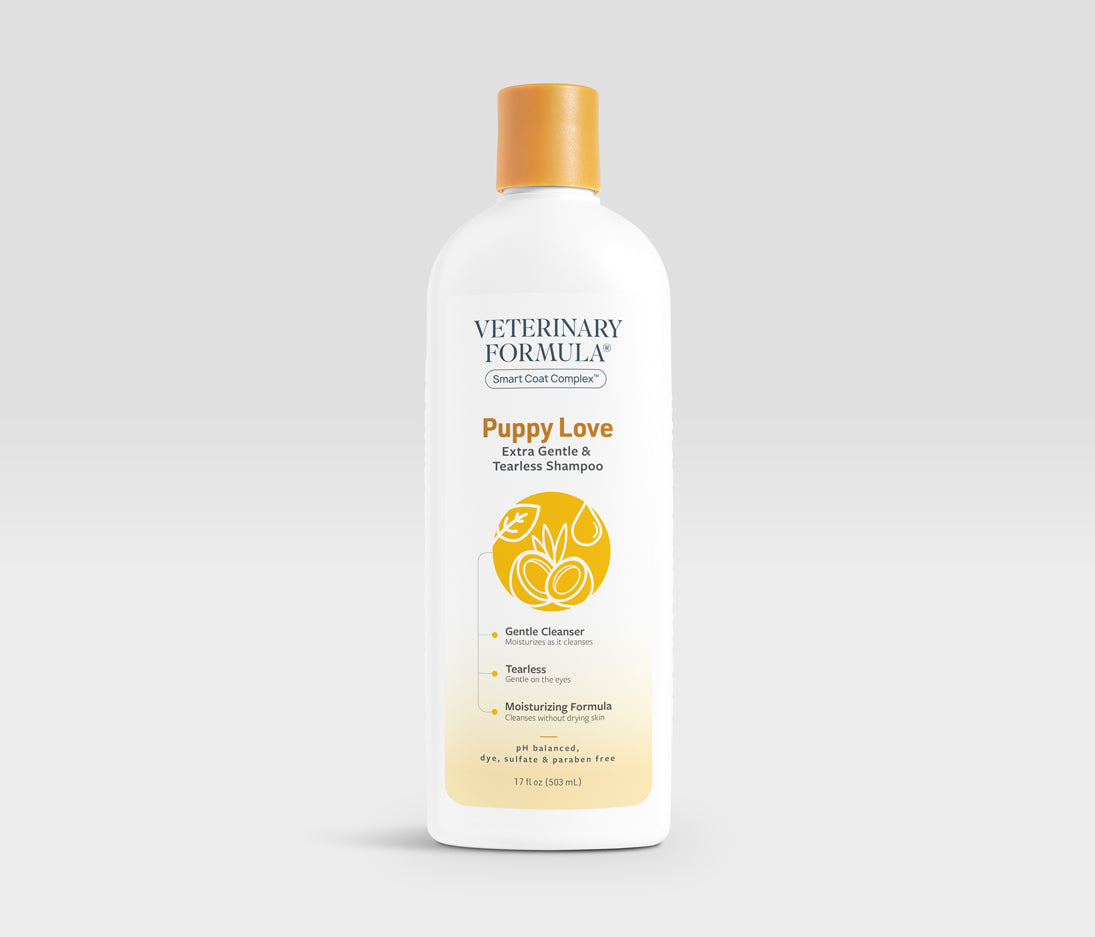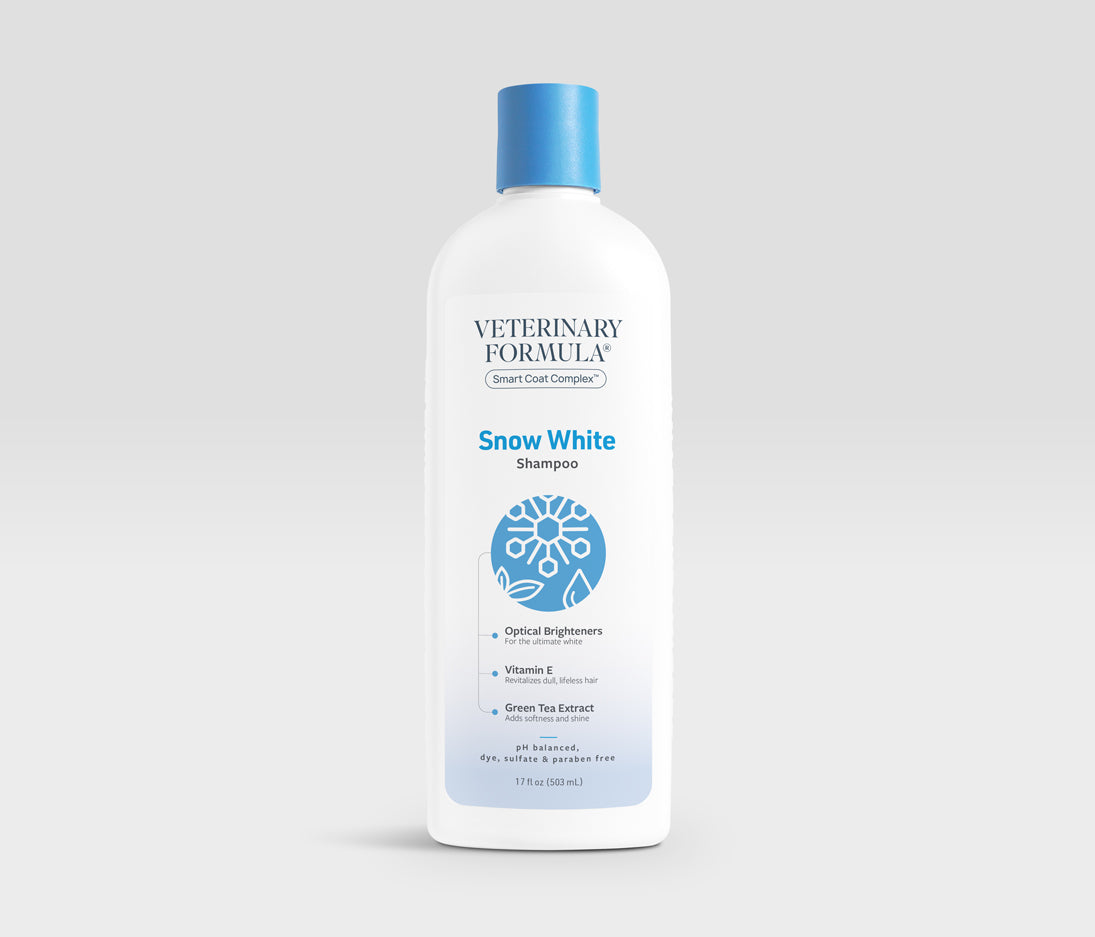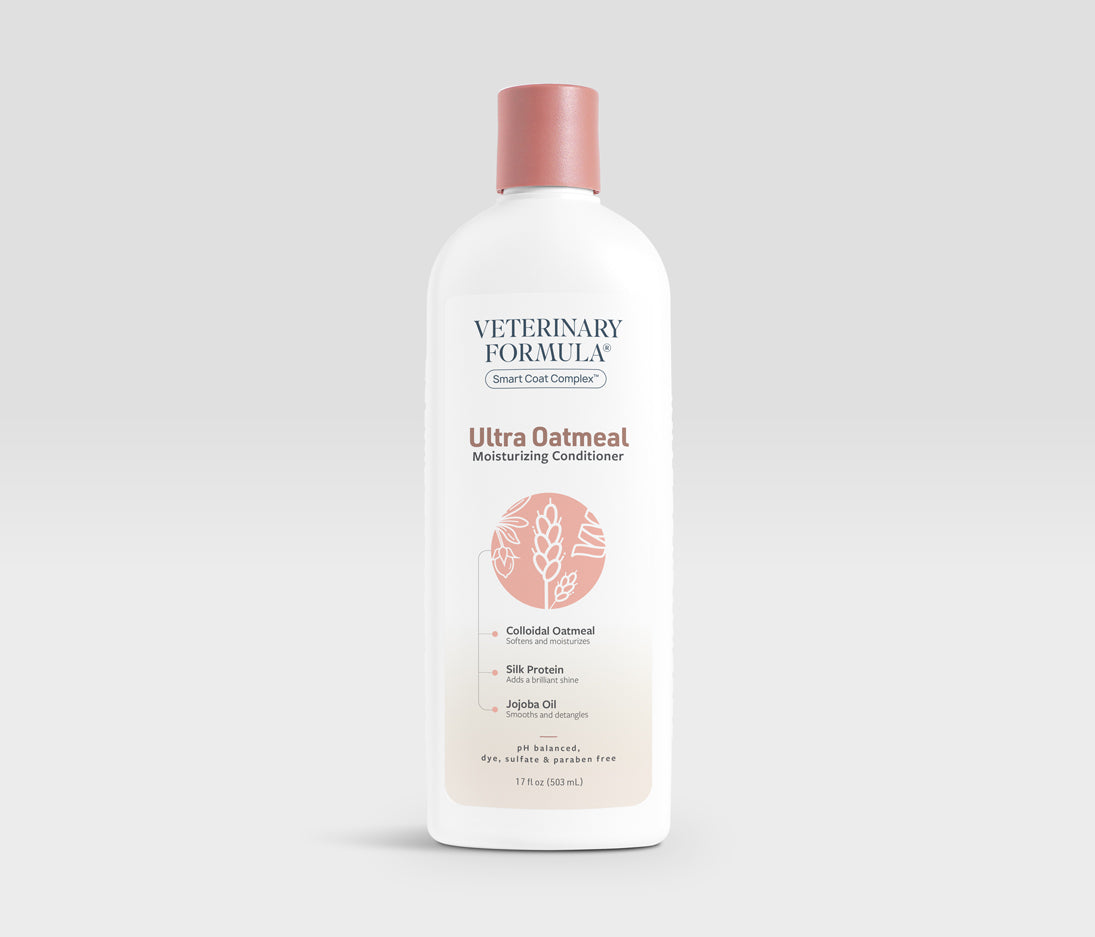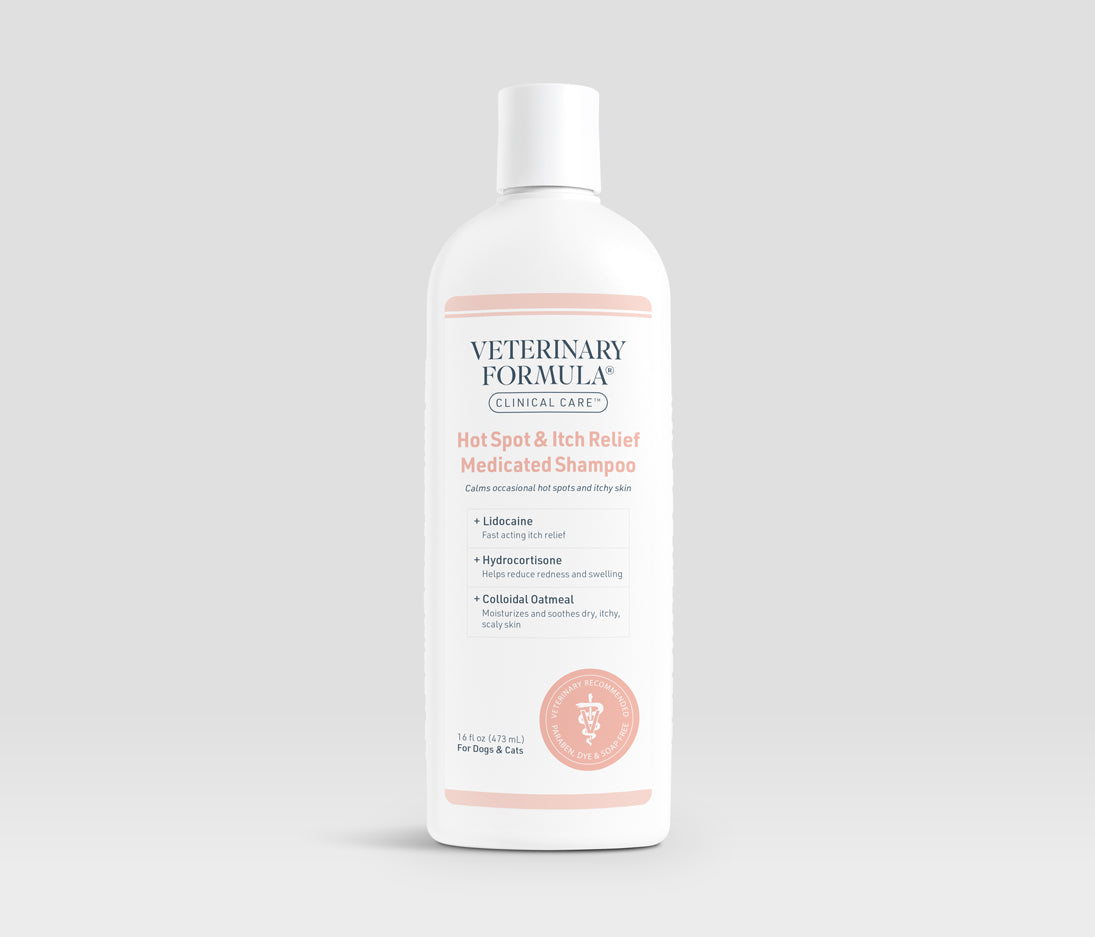Docosahexaenoic acid, more commonly referred to as DHA. It may not be the easiest thing to pronounce but its health benefits for dogs are undeniable. Whether you have an aging dog dealing with arthritis, a pooch tackling cancer, or a pup with allergies, a DHA supplement for dogs can help.

What is DHA?
Docosahexaenoic acid is a type of omega-3 fatty acid that dogs can not make themselves. Yet, it’s one of the most important substances in a dog’s body. Without it, a puppy’s brain and central nervous system can’t fully develop. Plus, DHA is also needed for the normal functioning of the brain in adult dogs.
(Find out more about omegas for dogs.)
Because dogs can’t make DHA themselves, they need to get it from their diet. Common sources include cold-water fish (salmon, anchovies, sardines), eggs, and organ meats. Vegetarian DHA comes from seaweed and algae.
DHA for Dogs
Supplementing the level of DHA in your dog’s diet can have widespread health benefits.In a 2021 review of 23 published studies of the effects of DHA on dogs and cats, the authors concluded that “a therapeutic benefit was found in canine allergic dermatitis, haircoat disorder, keratoconjunctivitis sicca (dry eye), valvular disease, and canine and feline osteoarthritis.”
The anti-inflammatory properties of DHA for dogs is one of the most studied aspects of the omega-3 fatty acid. Researchers, including those in a 2011 study, consistently show that omega-3 fatty acids have the potential to serve as a supplemental treatment option for dogs with atopic dermatitis (eczema).
Research has also shown that higher levels of DHA help stop the production of inflammatory substances, called cytokines, that cause itching and skin irritation.
DHA for Dogs with Cancer
According to dvm360, a leading veterinary media company, the “sum total of the human and animal literature” regarding DHA and cancer “is suggestive of a benefit.”In one study cited by dvm360, dogs with Stage IIIa lymphoma fed a diet supplemented with fish oil and arginine (an amino acid) had a longer disease-free interval and survival time than similar dogs fed a non-supplemented diet. (Dogs with Stage IVa lymphoma fed the supplemented diet saw no benefit.)
DHA for Senior Dogs
As mentioned above, the anti-inflammatory nature of DHA makes it excellent for fighting allergies. But it’s also good for older dogs dealing with the discomfort caused by osteoarthritis.Research has shown that arthritic dogs fed an omega-3 supplement (DHA combined with EPA) showed improvements in discomfort, lameness, and joint severity, when compared to dogs fed a placebo.
And, going back to that 2021 review of 23 previously published studies. “Supplements and diets enriched with these elements [DHA and EPA] are responsible for the improvement of clinical signs, behavior, activity and orthopedic measurements in six trials performed in dogs and two trials in cats diagnosed with osteoarticular conditions.”
There is also some evidence that a DHA supplement in senior dogs can help with memory and cardiovascular health.
DHA for Puppies & Nursing Mothers
DHA is a critical component in the neural development of puppies for two reasons. First, it’s one of the main structural components of the brain. And second, it’s the most abundant fatty acid in the brain. According to the American Kennel Club, DHA makes up more than 90% of the long-chain polyunsaturated fats in the brain. And, according to the Purina Institute, DHA is a key element of the parts of the brain associated with learning and memory.Simply put, without enough DHA during the development process, a puppy’s brain won’t work the way it’s supposed to.
This is true during pregnancy, as well as after. Like human babies, puppies’ brains continue to develop after birth. This means they need high levels of DHA in the weeks and months after birth in order for their brains to develop normally.
Young puppies get the needed amount of DHA from their mothers while nursing. Research shows that boosting the amount of DHA in the mothers’ diet can benefit their offspring, as well.
In a 2012 study sponsored by Iams, a select group of puppies received a DHA-enhanced diet, both before (through the mom’s diet) and after weaning. Other puppies received a standard amount of DHA. In the 30 days of testing, puppies that received the supplemented diet consistently outperformed the other puppies in a maze test.
A similar research study conducted by Hill's Pet Nutrition looked at the effect of boosting dietary DHA in puppies after weaning. Researchers found that pups fed higher levels of DHA between the ages of 8 weeks and 1 year showed higher cognitive, memory, psychomotor, and retinal function than dogs fed low or moderate levels of DHA.
Too Much DHA?
If you’re planning on adding an omega-3 supplement to your dog’s diet, take a look at his dog food first. Some dog foods contain higher levels of DHA and EPA and you don’t want to overload your pup.Too much DHA in your dog’s diet increases the production of chemicals that make it harder for her blood to clot. This can lead to excessive bleeding if your dog is bitten, has some kind of traumatic accident, or needs surgery.
And while the anti-inflammatory properties of DHA can help your dog, suppressing his entire anti-inflammatory response isn’t helpful. For instance, inflammation at the site of a cut or bite starts the healing process by triggering the migration of white blood cells to the wound. The higher the level of DHA in your dog’s body, the slower the healing process. (A real problem for any dog requiring surgery.)
Recommended doses of DHA+EPA dosages range, but generally fall in the 20 to 60 mg/pound of body weight.
If you’re at all unsure of how much is safe for your dog, call your vet to talk about your pup’s specific needs.
DHA for Dogs and Veterinary Formula Clinical Care
Because DHA can benefit your dog in many ways, we include it in almost every one of our supplemental chews.
For instance, Skin Health & Itch Relief has anchovy oil, a primary source of omega-3 fatty acids, including DHA.
The Senior Support once-a-day chew has green lipped mussel, anchovy oil, wild Alaskan salmon oil, and algae, all sources of DHA.
You’ll also find DHA-boosting ingredients in our Ultimate Joint Health, Complete Probiotic, Eye Health & Tear Stain, and Immune Defense supplements.
Additionally, we make our daily chews available in several sizes. That way you’ve always got the right dosage for whatever size your dog is.
